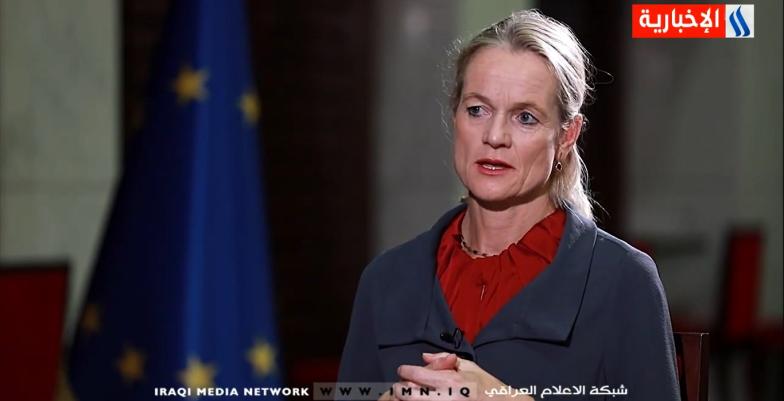About the EU EOM
The European Union was invited to observe the Council of Representatives elections on 10 October by the Independent High Electoral Commission (IHEC). The mission’s mandate is to observe all aspects of the electoral process and assess the extent to which the elections comply with international and regional commitments for elections, as well as with the laws of Iraq.
The mission is headed by Chief Observer Viola von Cramon, a member of the European Parliament from Germany.
A core team of twelve election analysts based in Baghdad and Erbil arrived in Iraq on 28 August. The core team analyses political, electoral, legal and media aspects of the electoral process, and it is supported by a logistical and security team. Twenty long-term observers from the EU Member States and Norway arrived in Iraq early in September. They observe the electoral process in the governorates and report to the core team.
Diplomats from EU Member States, Norway & Canada as well as a delegation of Members of Parliament of the European Union reinforce the Election Observation Mission on election day. In total, the mission will comprise over 80 observers. This is the first fully-fledged European Union Election Observation Mission to Iraq.
Observers will stay in their areas of responsibility well until after the election day, to observe all aspects of post-election day developments.
The EU EOM is independent from the EU Delegation to Iraq, EU Member States, EU
Institutions, the United Nations and Iraqi institutions and the Iraqi government.
EU EOM Mandate
The EU EOM will observe and assess:
- the legal framework and its implementation;
- the work of the election administration;
- campaign activities including campaign financing;
- the role of state institutions and civil society;
- the conduct of the media;
- social media;
- participation of women, persons with disabilities and national minorities in the process;
- voting, counting and announcement of results;
- the environment in which the elections are being conducted;
- the complaints and appeals process.
EU EOM Methodology
The EU EOM uses the following criteria during its assessment of an electoral process:
- the degree of impartiality shown by the election administration;
- the degree of freedom of political parties and candidates to campaign and express their views;
- the fairness of access to state and government resources on all levels during the elections;
- the universal franchise afforded to voters;
- the degree of access for political parties and candidates to the media, in particular the state media;
- the conduct of polling , counting and announcement of results.
Additionally, the EU EOM follows up on any other issues which concern the democratic nature of the elections. This includes for example the campaign environment – also online, and on social media.
The EU EOM will publish a preliminary statement shortly after the election day and a final
report, including recommendations, after the end of the electoral process. The recommendations aimed at improving future electoral processes are non-binding and for consideration by Iraqi stakeholders.






